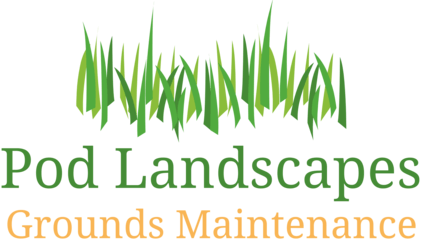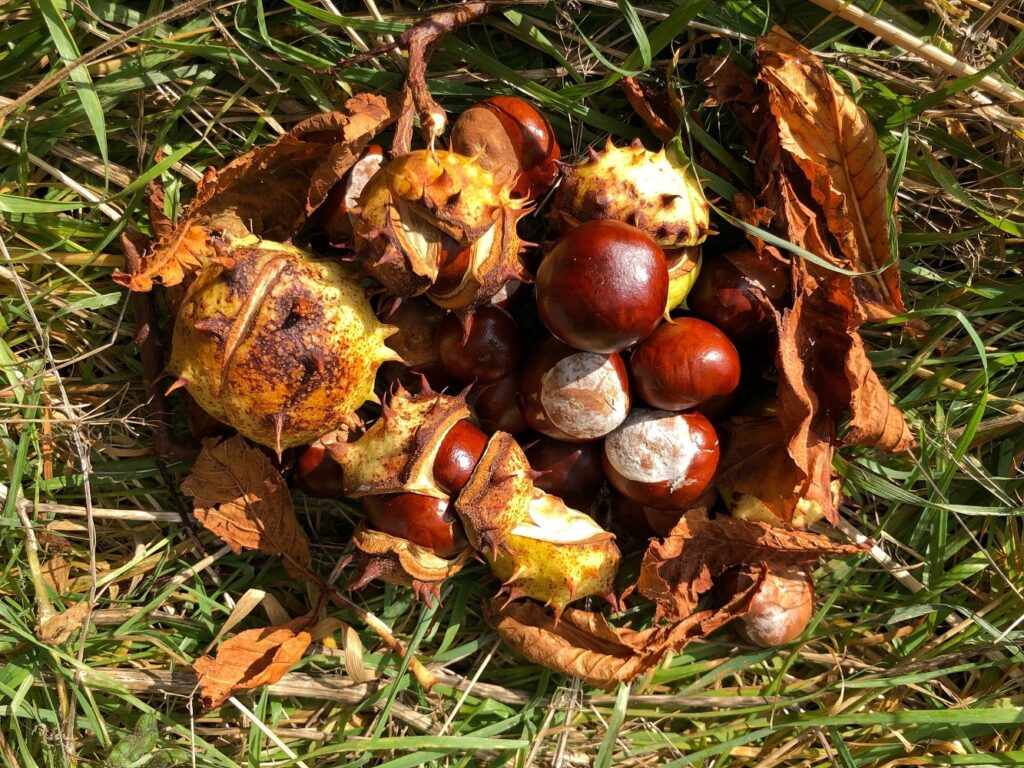While the weird weather might be sending trees and flowers haywire, some trees seem determined to stay on time. Leaves might be clinging to the branches, but horse chestnuts and sweet chestnuts are falling in droves, scattering conkers, seeds and shell casings far and wide. Since we’re clearing these up left right and centre, we wanted to share some information about the seeds (did you know conkers are seeds, not nuts?) that so many of us played with in our childhoods, and why you shouldn’t leave them lying around your premises.
What Are Conkers?
Conkers is an affectionate nickname for horse chestnuts, seeds from the horse chestnut tree. It’s perhaps one of the most recognisable trees in the UK. They have distinctive ‘hand ‘shaped leaves, candelabra flower spikes, and shed large round seeds every autumn. A few fun facts about them include:
- Conkers aren’t edible, unlike sweet chestnuts. In fact, conkers are poisonous to people and most animals too. Only a few animals, like deer and wild boar, can eat them.
- Horse chestnut trees can live to be over 300 years old. That might seem like a long time, but many trees live over twice that long.
- While horse chestnut trees can be found all over the UK, they aren’t a native tree species. In fact, they weren’t introduced until the 16th Century!
- Conkers can be crushed and then soaked to produce a natural, sweet-smelling laundry detergent. They contain a chemical called saponin, which is the chemical that makes soap work.
- Conkers can also be used to make medicine for horses, and as part of the starch used to prepare weapons and equipment in WW2.
The Pros And Cons of Horse Chestnuts on Your Premises
Horse chestnut trees are a common sight in UK woodlands, and many business parks will have at least a few in their wooded areas or lining car parks. There’s a good reason for this. As trees go, they are strong and hardy. They can withstand harsh weather conditions, are very tolerant of drought and heat, and can repel most pests and diseases with ease, making them very easy to care for. They’re also very tall (around 60 ft when mature), and naturally straight trees, so are great for creating a more uniform look. They provide a lot of shade within your grounds, and in spring they produce a canopy of white flowers that look stunning.
Of course, there are some downsides, and we’re seeing a lot of those at the moment. Come autumn, horse chestnut trees will drop conkers, with each tree producing over 300 conkers every single year! When they hit the ground, the shell will split open and the conker will roll out, leaving an empty spikey shell and a shiny new conker on the ground.
That all sounds lovely. But conkers are hard and round. They’re like marbles scattered all over the ground – and we’ve all seen how those cartoons end! Conkers are easily missed on the ground, especially once the leaves start to fall and hide them, making them a major slip hazard. If you have staff on-site, elderly residents, or people visiting, you have an accident waiting to happen.
How Do I Keep My Grounds Safe?
The best way to keep your grounds safe from the conker menace is to do routine clearance from the start of conker season – which was around 3 weeks ago! There’s nothing you can do to stop the conkers from falling, so your focus should be on getting them cleared as often as possible so they present minimal risk. This may mean daily path sweeping, along with regular leaf clearance services, which will help remove the rest of the conkers and their shells. You should also keep an eye on the general health of your trees, and hire a tree surgeon to prune diseased or crossed branches. This will stop them from falling on someone’s head and causing injury – no one wants that!
At Pod Landscapes we are your expert ground maintenance team, providing a wide range of seasonal maintenance solutions for business parks, care homes, hotels and many other commercial premises across the south. As autumn sets in that means a lot of conker clearance as we wait for the delayed leaf fall – which we will also clear! Leaf clearance is. one of our most common jobs at this time of year, as we are fully registered and qualified to clear leaves and conkers, and then dispose of the waste safely.
If you would like to find out more about how to keep your grounds safe and conker-free, just get in touch to book your free, no-obligation consultation.


